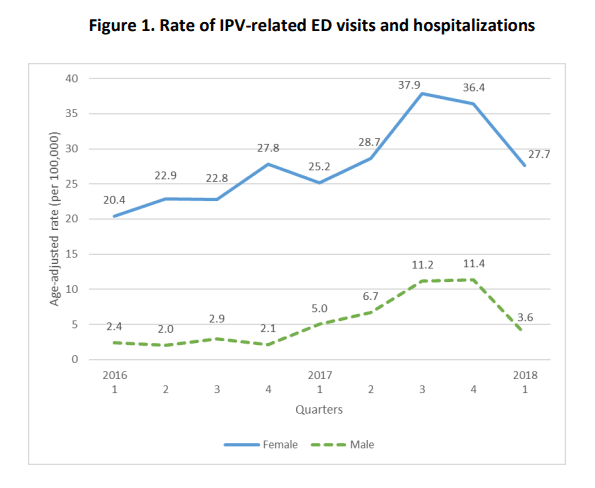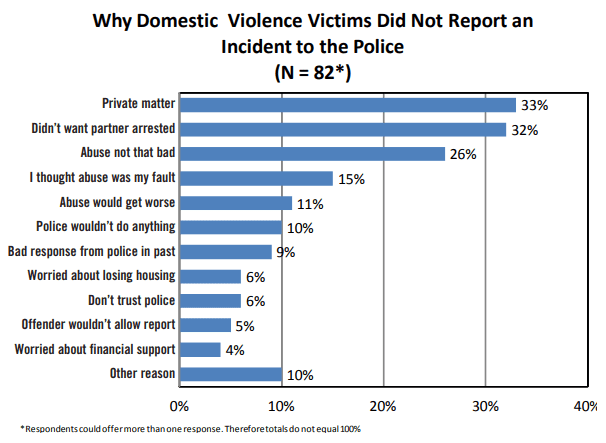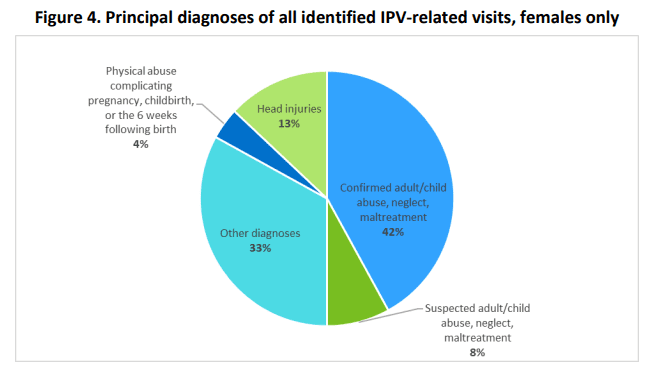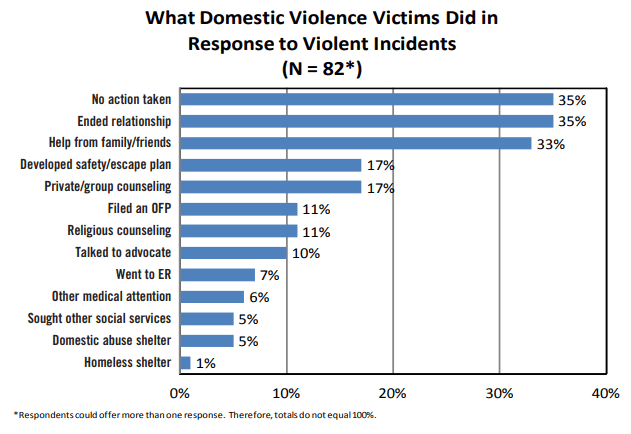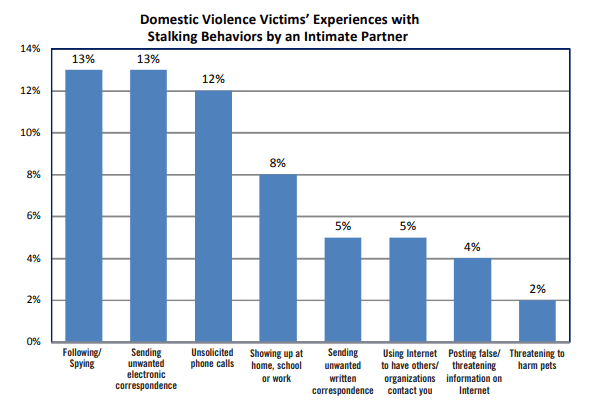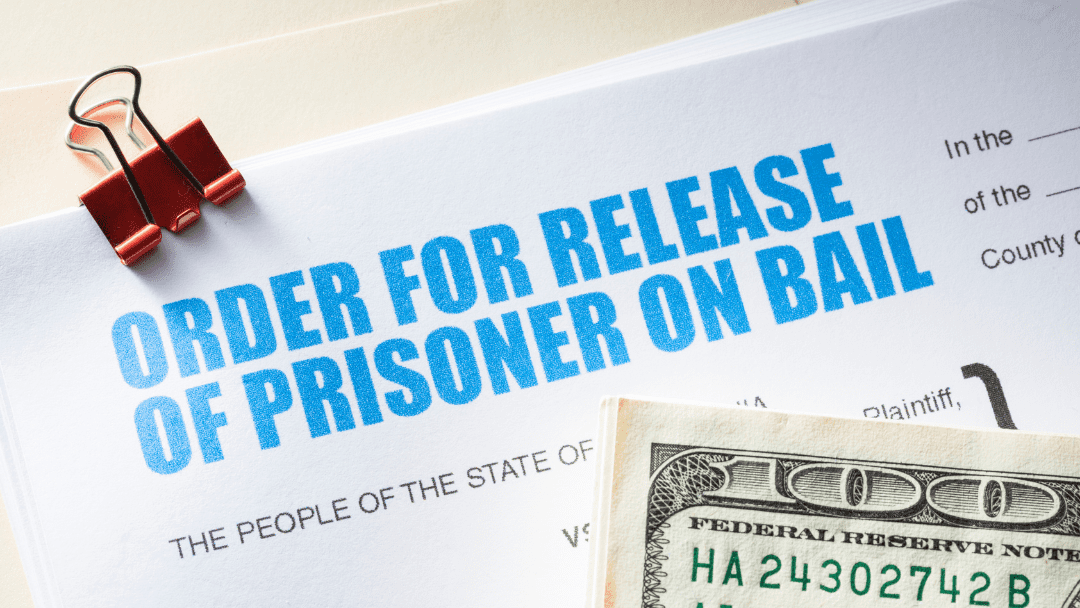Domestic violence is a crime that is taken very seriously under Minnesota law, but the statutes and penalties surrounding crimes of domestic violence can be complex and difficult to understand.
How is domestic violence defined in our state? What can happen to you if you are accused of a crime of domestic violence — or worse, convicted of it?
These are questions everyone should know the answer to, so read on to find out more about domestic violence laws in Minnesota and what they can mean for you.
First, though, a bit on why our state treats domestic abuse so seriously.
Minnesota Has an Epidemic of Domestic Violence
According to the National Coalition Against Domestic Violence’s 2020 Fact Sheet for Minnesota, 33.9% of women and 25.1% of men in our state experience domestic violence at some point in their lifetime. Moreover, local domestic violence hotlines get 13 calls each minute on a typical day.
It doesn’t stop there, though. You can find information on emergency department and hospitalization rates, types of injuries, and more.
Report: Hospital-Treated Intimate Partner Violence in Minnesota Source: Minnesota Department of Health 3/2019
All of which is a long way of saying that domestic violence is a truly serious issue here. With just that information alone, you could probably understand why the laws are so strict, but it goes beyond even that.
Experts estimate that a huge percentage of domestic abuse incidents are never reported. We even have data on why and on how victims did respond:
Results from the 2010 Minnesota Crime Victim Survey Source: Department of Public Safety Office of Justice Programs 3/2012
With so many victims skipping the criminal justice system and far too many remaining in situations where domestic violence is occurring, lawmakers use the often severe consequences of conviction as a deterrent.
Unfortunately, not everyone who is hit with a charge or conviction is actually guilty of domestic violence, which is why it is so important to know how the law works if you find yourself in this situation.
Domestic Violence in Minnesota
In many cases, situations involving domestic violence result in charges for a crime called domestic assault. Under Minnesota law, domestic assault is defined as an act that attempts to inflict or inflict bodily harm on a household or family member for the purpose of causing them fear of injury or death.
There are two types of domestic assault under the law: simple domestic assault and aggravated domestic assault. Simple assault lacks any aggravating factors and is often considered a misdemeanor under the law. However, any offense involving strangulation is a felony and has harsh penalties associated with it.
Aggravated domestic assault has the same intent as simple assault but includes the use of a deadly weapon such as a gun, an object like a bat or hammer, or even a motorized vehicle.
The weapon is used to perpetuate the assault and cause injury. This crime is a felony.
Domestic abuse crimes don’t stop with assault, though. There are a number of offenses one can be charged with that fall under the DV banner, known as “qualified domestic violence-related offenses” (QDVRO).
These include:
- Attempted strangulation
- Criminal sexual conduct
- Harassment
- Interfering with an emergency call
- Malicious punishment of a child
- Murder
- Nonconsensual dissemination of private sexual images
- Stalking
Results from the 2010 Minnesota Crime Victim Survey Source: Department of Public Safety Office of Justice Programs 3/2012
- Terroristic threats
- Violation of an order for protection or no-contact order
Simply put, if you threaten or cause actual physical harm to a family member or someone in your household in our state, Minnesota law says that you have committed an act of domestic violence.
Who Qualifies as a Household or Family Member?
In order for charges to be considered domestic assault, an act must be perpetrated against someone considered a household or family member. But who is that exactly? That’s defined by the law as well.
In Minnesota, a household or family member is defined as:
- Someone related to you by blood
- Spouse
- Former spouse
- Children
- Parents
- Someone you currently live with or have lived with in the past
- Someone you have a child in common with no matter if you’re married or not
- Anyone you are involved in a significant sexual or romantic relationship with
Penalties for Domestic Violence Offenses
Domestic violence offenses carry various charges that depend on the circumstances surrounding the individual crimes as well as the risk or harm involved in them. Prosecutors can seek more serious punishments for those who have past convictions for a domestic violence-related offense.
Here are some of the most common penalties you’ll find in cases of domestic violence offenses:
Misdemeanor or Gross Misdemeanor
If someone is found guilty of assaulting a household or family member, they can spend up to three months in jail and be responsible for fines of up to $1,000.
If it’s the first conviction for a domestic violence-related crime, then it’s a misdemeanor. If there are any prior convictions for domestic violence-related crimes in the last 10 years, then it is considered a gross misdemeanor. That carries with it a penalty of up to 12 months in jail and fines of as much as $3,000.
Felony Domestic Assault
Domestic assault is considered a felony if strangulation is involved. The penalty for this crime is up to three years in prison unless there is a great penalty that applies to the situation.
Strangulation is defined by the law as placing pressure on the neck or throat or blocking the mouth or nose in order to impede a person’s ability to breathe.
Other Felony Penalties
There are other circumstances under which felony penalties can be sought in court for domestic violence-related offenses. They include:
Any Prior Convictions
If you have previously been convicted of a crime that is considered a qualifying domestic violence-related offense in the last 10 years or you have violated an order for protection, then you face felony charges that could send you to prison.
Weapons or Bodily Harm
If you assault someone and it results in great or substantial bodily harm, then it can be charged as a felony. Five years in prison can be sentenced if substantial bodily harm is perpetrated and as many as 20 years can be sentenced for great bodily harm.
It is also illegal to assault someone with a deadly weapon, which can result in a sentence of up to 10 years in prison.
Death
If you assault someone and cause their death, then it’s possible to be charged with either first or second-degree murder, which can send you to prison for life.
Other Penalties Associated with Domestic Violence Crimes
Yes, there are fines and jail sentences to contend with if you are found guilty of a crime of domestic violence, but those aren’t the only penalties you’ll have to deal with. You also face restrictions and other conditions that you must abide by to stay within the confines of the law, or you could face additional consequences.
These include:
Arrest without Warrant
You can be arrested by a law enforcement officer in Minnesota without a warrant if they have probable cause to believe domestic abuse was committed in the prior 72 hours. If the police have a reason to suspect a no-contact order or order for protection has been violated, then the offender is required to be held in jail for a minimum of 36 hours.
Paying Bonds
If someone violates an order for protection, then a bond of up to $10,000 can be ordered by the judge to be paid if they want out of jail. This is meant to deter violations of the order in the future.
No Contact Orders
When someone has a pending criminal proceeding for domestic abuse against them, then the court has the ability to issue a no-contact order against the defendant. There are additional penalties that can be handed out if that order is violated.
Restrictions to Firearms
If someone is convicted of domestic assault or they violate an order for protection, then they cannot legally possess a firearm for a minimum of three years – maybe more.
If a firearm was used in the offense, then the firearm has to be forfeited to the police. If this is violated, then it’s a separate charge of a gross misdemeanor, which can lead to a jail sentence of up to 12 months and order fines of up to $3,000 to be paid.
There may be further federal firearms restrictions applied as well.
Domestic Violence and Child Custody
If children are involved in a domestic violence case, there are implications for child custody as well under Minnesota law.
Physical and legal custody are the two types of child custody someone can have. Physical custody usually is given to the parent that provides most of the child’s daily care such as feeding and bathing. Legal custody, however, is the legal right a parent has to make important decisions for the child, such as educational and medical decisions. In many cases, parents share legal custody of a child.
If domestic violence occurs in the home, shared custody situations can be altered. A judge will consider several important facts when deciding the legal and physical custody of a child such as:
- The wishes of the parents
- The wishes of the child and they can communicate them
- The primary caretaker of the child
- How close each parent is to the child
- Other important relationships in a child’s life such as siblings and parents
- If the child is used to and comfortable in the school, home, and community in which they live
- How long the child has lived in a suitable and stable environment and the importance of maintaining that environment
- The physical and mental health of those in the family
- The cultural background of the child
- How will and able each parent is to provide a child with what they need
- The impact domestic violence has had on the child
Judges are required to consider domestic violence when rendering a judgment on custody, so they will accept evidence of domestic violence that has occurred between the parents or between a parent and someone else in the household.
This type of evidence can cause a judge to deny a request for joint custody of a child and also can impact visitation. In some severe cases, a parent can have their parental rights terminated if a parent is unfit due to a consistent pattern of conduct that makes them unable to appropriately care for the child, like domestic violence.
Orders of Protection in Domestic Violence Cases
It’s also important to note that an order of protection can be granted by the court in cases of domestic violence. In Minnesota, there are two types of domestic violence protective orders: ex parte and full orders.
In Minnesota, both parties named in the order don’t have to be present at the hearing in order for a long-term order to be granted. The judge can issue a long-term order on the first court date and the respondent who is named in the order will then have to request a hearing in objection.
Ex parte orders of protection are temporary and are meant to help protect someone the court feels is in immediate danger of domestic violence. These orders can last up to two years.
Full orders can be granted for up to 50 years if there have previously been at least two orders granted against the person named in the order. The order can be modified if no violations have occurred in five years.
Orders of protection serve to help keep someone safe from harassment or further incidents of domestic violence. They require several things of the person named in the order as the perpetrator such as:
- They must move out of a home if shared
- They must pay child support and spousal maintenance temporarily
- They must stay a certain distance away from the victim
- They must complete treatment or counseling
- They cannot sell, destroy, harm, or give away property
Orders of protection are not done in criminal court but in family court. However, violating an order of protection is a criminal matter and can have legal consequences. It is considered an act that is in contempt of court and can additionally be a misdemeanor, gross misdemeanor, or felony to violate it.
For a misdemeanor violation, the defendant can go to jail for up to three months and be responsible for fines of as much as $1,000. For a gross misdemeanor, the penalty rises to 12 months in jail and fines of $3,000. Felony violations can land them in jail for one year or more and hand down fines of up to $10,000.
Relationships are complicated, and the arguments that can occur in them are often complicated as well. Remember, a charge is not a conviction. Anyone accused of domestic violence has rights, and must ensure that those rights are being upheld in any criminal and civil processes that take place in the wake of an alleged domestic violence incident.
About the Author:
Christopher Keyser is an AV-Preeminent rated criminal and DWI defense attorney based in Minneapolis who is known for fighting aggressively for his clients and utilizing innovative tactics to get the most positive results. He has been featured in numerous media outlets due to the breadth and depth of his knowledge and named a Certified Specialist in Criminal Law by the Minnesota Bar Association. Mr. Keyser is Lead Counsel rated, and he has received recognition for his criminal law work from Avvo, Expertise, Super Lawyers, The National Trial Lawyers, and more.






